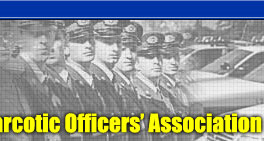


 Supreme Court Upholds Dog Sniffs at Traffic Stops
The U.S. Supreme Court ruled on Monday that police do not violate the constitutional right to privacy when a dog sniff of a vehicle during a lawful traffic stop turns up contraband.
The justices by a 6-2 vote, in a majority opinion written by Justice John Paul Stevens, set aside an Illinois Supreme Court ruling that such searches required reasonable suspicion of wrongdoing. "In our view, conducting a dog sniff would not change the character of a traffic stop that is lawful at its inception and otherwise executed in a reasonable manner, unless the dog sniff itself infringed" on the individual's constitutionally protected privacy rights, Stevens wrote. "A dog sniff conducted during a concededly lawful traffic stop that reveals no information other than the location of a substance that no individual has any right to possess does not violate the Fourth Amendment" protections against unreasonable searches and seizures, Stevens concluded. The case involved Roy Caballes, who was stopped in 1998 on an interstate highway in LaSalle County for driving six mph over the speed limit. Trooper Daniel Gillette asked Caballes for consent to search the car, but he refused. Trooper Craig Graham arrived and began walking around the car with the dog. The dog acted as if the trunk contained drugs. Gillette searched the trunk and found marijuana. Caballes was arrested and charged with one count of marijuana trafficking. He was convicted and sentenced to 12 years in prison and fined more than $256,000, the street value of the drug found. Caballes sought to suppress the marijuana found in the trunk as an unconstitutional search, and the Illinois Supreme Court agreed that use of the dog was an unjustified expansion of the traffic stop. Stevens said Caballes did not have a legitimate expectation of privacy for contraband in the trunk of his car. He said that was different from the expectation that information about perfectly lawful activity will remain private. Justices David Souter and Ruth Bader Ginsburg dissented. Souter said he would rule that using the dog for the purpose of determining the presence of marijuana in the car's trunk was a search unauthorized in connection with the speeding stop and unjustified on any other ground. Ginsburg agreed and said she would hold the police violated Caballes's rights when they conducted the dog sniff without cause to suspect wrongdoing. Both Souter and Ginsburg said their dissent only applied to use of dogs sniffing for illegal drugs in vehicles, and did not apply to their use to detect explosives or dangerous biological or chemical weapons carried by a would-be terrorist. |













